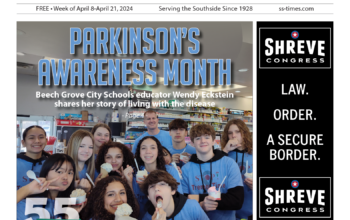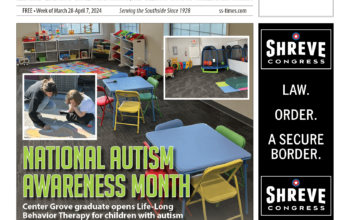By Rick Hinton

Discernment is defined as: the quality of being able to grasp and comprehend what is obscure; a power to see what is not evident to the average mind (Merriam Webster’s Collegiate Dictionary).
Catholic priests have a big job ahead of them when sending themselves in the dark Netherlands of determining if a person is pos- sessed and at a point where an exorcism is warranted. People who feel they are in the grip of supernatural shenanigans can easily be deceived by their imagination. Could it be that?
Perhaps it might be a natural explanation that will explain the behavioral change of an individual or paranormal activity in their home? Or, is it truly something darker, ta ing them down a road they would not want to travel? This determination can bring a life-altering decision.
It starts with an interview, the results of which will determine the route the priest will take. In the interview process, discernment is one of the gifts God gives to the faithful. It is a helpful tool to have; a seasoned exorcist relies upon it. What conditions are mistaken for demonic possession? In Matt Baglio’s book, “The Rite: The Making of a Modern Exorcist,” he lists a few examples:
•Schizophrenia: paranoia, delusions, hearing voices, hallucinations
•Hysteria: emotional excess that can develop into a host of physical ailments
• Bipolar disease: fluctuating moods
• Obsessive-Compulsive Disorder-OCD: feeling tormented by obsessive thoughts and compulsive actions
• Epilepsy: uncontrollable episodes, movements and speech
•Disassociation: when daily routines turn strange: “zoning” out while driving a car, consistently in a haze or feeling that you are located outside of your body
Discernment is also important for paranormal investigators during the beginning phases of a private investigation. These should also start with an interview. The interview is crucial in determining whether you will say goodnight and return home with a car full of teammates and equipment or proceed onward. If you go into a situation buying into a story, you are already predisposed to the conclusions you will draw. You are not doing the client – or yourself – any favors.
A good interviewer will weed out the medical conditions mentioned above as opposed to paranormal claims (which might only include a fascination with the ghost shows on television).
Many exorcists in training, initially serving an apprenticeship in learning the ‘Ritual,’ are apprehensive they might get it wrong and misdiagnosis the true condition of their client. It is a valid concern, and paranormal investigators should worry about the very same thing. There is nothing like giving a wrong call that will affect someone’s life. You will either fuel the fire or solve the problem.
Recently I was contacted by someone with a strange picture. He had contacted a few local groups, with one telling him the figure in the photo was a demon. They had never even been to his residence. Really people?
The exorcist must be the ultimate skeptic. In the realm of chasing ghosts and things that go bump in the night, so should we.

